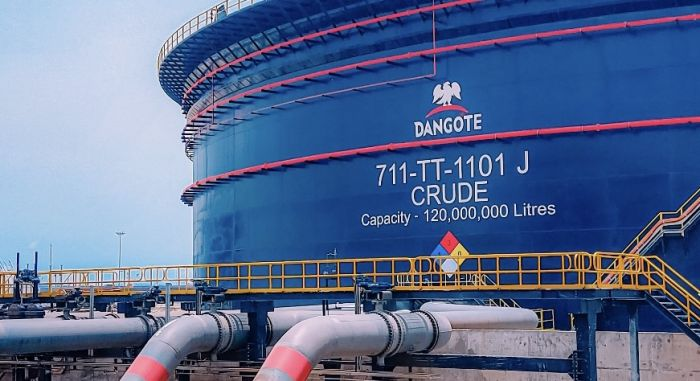Dangote Petroleum Refinery, Nigeria’s largest refining facility, has announced a temporary suspension of petroleum product sales in Naira, citing a critical foreign exchange (FX) mismatch.
The refinery announced that the decision which is effective immediately, stems from what it described as an imbalance between the refinery’s dollar-denominated crude oil procurement costs and its Naira-based sales revenue.
In an official statement released on Wednesday, the refinery’s management explained, “We wish to inform you that, Dangote Petroleum Refinery has temporarily halted the sale of petroleum products in Naira. This decision is necessary to avoid a mismatch between our sales proceeds and our crude oil purchase obligations, which are currently denominated in U.S. dollars. To date, our sales of petroleum products in Naira have exceeded the value of Naira-denominated crude we have received.
“Our attention has also been drawn to reports on the internet claiming that we have stopped loading due to an incident of ticketing fraud. This is a malicious falsehood. Our systems are robust, and we have had no fraud issues.
“We remain committed to serving the Nigerian market efficiently and sustainably. As soon as we receive an allocation of Naira-denominated crude cargoes from NNPC, we will promptly resume petroleum product sales in Naira.”
The move came after the Nigerian National Petroleum Company Limited (NNPCL) reportedly halted its Naira-for-crude oil swap deal earlier this month, a move that might have forced Dangote to rely on dollar-based transactions for crude purchases.
The development also comes in contrast to a policy initiated in October 2024, when the federal government approved crude oil sales to local refineries in Naira to ease pressure on foreign exchange reserves and stabilize fuel prices.
However, with the Naira-for-crude arrangement reportedly stalled, Dangote Refinery has been left exposed to currency fluctuations.
This comes after some economic analysts had warned that the implications of ending the Naira-for-crude policy could be far-reaching.
Analysts had predicted that by switching to dollar-denominated sales, fuel prices are likely to surge, further straining Nigerian consumers already grappling with inflation and a weakening Naira.





